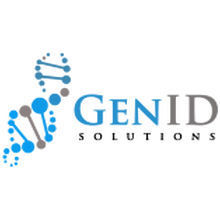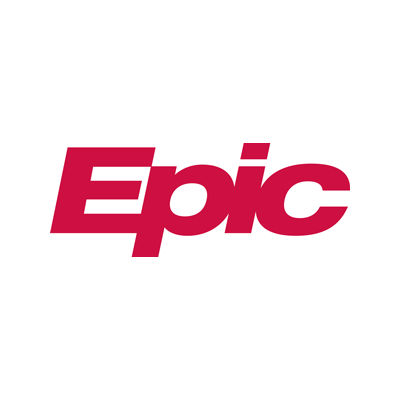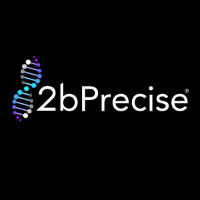Clinically there has been no other option, so it's natural to think the current way of doing things
is 'fine.' If you invert, and Geneticure and standard of care were both available, there is much
less doubt.
There most certainly is a problem with how we prescribe medications, and population-wide
results from the standard of care are pretty dismal[1, 2]. There have been minimal meaningful
advances in HTN care in recent years, and this has led to complacency with the standard of
care. Despite the perception that current time to control the disease is good, control rates are
abysmal, and that is extremely costly ($94B annually in the U.S.).
End organ damage begins to occur immediately with high BP. 40% of patients on meds and
taking medications as prescribed by their clinician (confirmed with urine testing and mass
spectrometry) are not under control[3], they are on the wrong therapy. Additionally, even if
patients achieve their blood pressure goal in 6-8mo, patients are very often taking unnecessary
medications for life that have long term side effects or some that may cause blood pressure to
go up.
There is a very under-appreciated bell-curve (variable) response to BP therapy. 40-50% of
patients respond to each medication, even when adherence is confirmed. Meaning, this is not
due to lack of compliance. The average reduction in BP for any medication is 7-8mmHg over the placebo effect, and each medication class has dramatic side effects[4] [5] [6, 7].
Because of this, layering of medications that may or may not work will not be a best clinical
practice in the future: for each medication added to a patient's regimen, there is a 70% increase
in non-compliance[8]. Not to mention the millions of patients that don't have the financial
means or discipline for 6-8 months of trial and error.
All of these factors lead to 50% control rates for the leading preventable cause of death in the
world, and I think most would argue that's not good enough. Given our approach has and will
continue to demonstrate clinical and economic superiority, clinicians will eventually be putting
patients in harm's way by not adopting.
We recognize this will take time and capital, but we will get there with our great partners like
Mayo Clinic, Omron, and Medtronic. Payers stand to save billions (as we are 47% less expensive
than standard of care, demonstrated by peer-reviewed evidence).
Patients and employers who are increasingly on the hook for healthcare spending will benefit
from the same cost reductions. Additional benefits include less missed work for trial and error
and less "pill fatigue." Therapy non-adherence will diminish by eliminating the stacking of
medications, which also impacts other diseases. None of these factors are included in our 47%
cost savings evidence and will be accretive to the value.
Providers will benefit from millions of open office visits, freeing time for higher quality (and
more profitable) visits. There will be a meaningful contribution to alleviating physician burnout
as we continue to apply the same approach to additional titration/switching visits across other
similar chronic diseases. For this reason, we anticipate a future where our diagnostic is required
before prescribing medications.
Summarizing key points:
• Each conventional BP medication has a bell-curve response with some patients showing
a drop, some demonstrating no change, and approximately 20% showing an increase in
BP. This variability is well-studied and true of each of the standard BP medication
classes.
• Each BP medication has an average response rate of 50% in the population.
• Even when patients are adherent and taking their medications, as prescribed, 40% of
these individuals still do not have BP under control.
• There is a problem with layering medications
• Each medication has a pronounced side-effect profile. These are not harmless
treatments.
• For each pill that we add to a patient's regimen, medication non-adherence increases by
70%. Non-adherence is a big problem in hypertension.
• We have the only PGen HTN panel that has actual data behind it (in peer-reviewed
publications).
• We have demonstrated that patients who match our drug recommendation #1 show
36% lower BP from diagnosis to controlling BP.
• Even with patients on monotherapy: if they match our recommendation, they are 50%
more likely to meet the new more stringent blood pressure guidelines.
• In a small pilot RCT against the standard of care (JNC-8, AHA, ACC guidelines), we
demonstrated half of the serious adverse events, when compared to the standard of care.
1. Egan, B.M., Y. Zhao, and R.N. Axon, US trends in prevalence, awareness, treatment, and control of
hypertension, 1988-2008. JAMA, 2010.303(20): p. 2043-50.
2. Carey, R.M. and P.K. Whelton, The 2017 american college of cardiology/american heart associaBon
hypertension guidelines: A resource for pracBcing clinicians. Annals of Internal Medicine, 2018.168(5): p. 359-
360.
3. Gu, Q., et al., Trends in anBhypertensive medicaBon use and blood pressure control among United
States adults with hypertension: the NaBonal Health And NutriBon ExaminaBon Survey, 2001 to
2010. Circula+on, 2012.126(17): p. 2105-14.
4. Turnbull, F., et al., Effects of different blood pressure-lowering regimens on major cardiovascular
events in individuals with and without diabetes mellitus: results of prospecBvely designed overviews of
randomized trials. Arch Intern Med, 2005. 165(12): p. 1410-9.
5. Materson, B.J., et al., Single-drug therapy for hypertension in men. A comparison of six
anBhypertensive agents with placebo. The Department of Veterans Affairs CooperaBve Study Group on
AnBhypertensive Agents. N Engl J Med, 1993. 328(13): p. 914-21.
6. Gong, Y., et al., Pharmacogenomic Genome-Wide Meta-Analysis of Blood Pressure Response to beta-
Blockers in Hypertensive African Americans. Hypertension, 2016.67(3): p. 556-63.
7. Chapman, A.B., et al., Predictors of anBhypertensive response to a standard dose of
hydrochlorothiazide for essenBal hypertension. Kidney Int, 2002.61(3): p. 1047-55.
8. Gupta, P., et al., Risk Factors for Nonadherence to AnBhypertensive Treatment. Hypertension,
2017.69(6): p. 1113-1120.






















